A Fuzzy Journey – 矇眬之旅
Notes from a talk organized by The “706 Digital Nomad” project for the Third Salon, held online the 10 January 2021
So if Digital Nomads are gentrified versions of “us” who are we?
倘若数字游民是“我们”的仕绅化版本,那我们是谁?
by Federico “fredd” Bonelli,
Slides translations by Hsiao Ying Lai 曉瑩
Soul seeking an identity could be done as a flag in the wind or as a flying piece of trash. They both give away the wind direction in very different ways…
fredd while thinking of “American Beauty” 1999 film by Sam Mendes
PART ONE
Who am I?
Now I am Fredd aka freddbomba. I am particularly happy to have been invited to talk to you tonight. I am going to talk to you from the point of view of a philosopher, untied to any academy, born and breed in the XX century, and of a “Smanettone”, an italian hacker of the second generation, that has a bit contributed (very little) to the shape of the digital world and can bring testimony of some stories from my own subculture: italian/european/ hacker art and FLOSS, scene between 1990-2020. I am not at all a central figure, mostly a passer by, a side contributor and a partial testimony. I will do my best to be accurate but memories can be tricky. I know you don’t mind I will try to be consistent only when I talk as a philosopher 😉
The earliest known use of the terms “digital nomad’ according to the omnipresent Wikipedia is dated back to 1997, and the context for the term is “remote work”. That should already be highly suspected because “remote work” was in the visions since the 1970es… When I discovered this pseudo story i thought “crap!” and my BS-meter went off-scale. What about Teletext, GSM and all the other crap hipsterized through the decennias into the CC (collective Conscious) by the PR branding conglomerate?
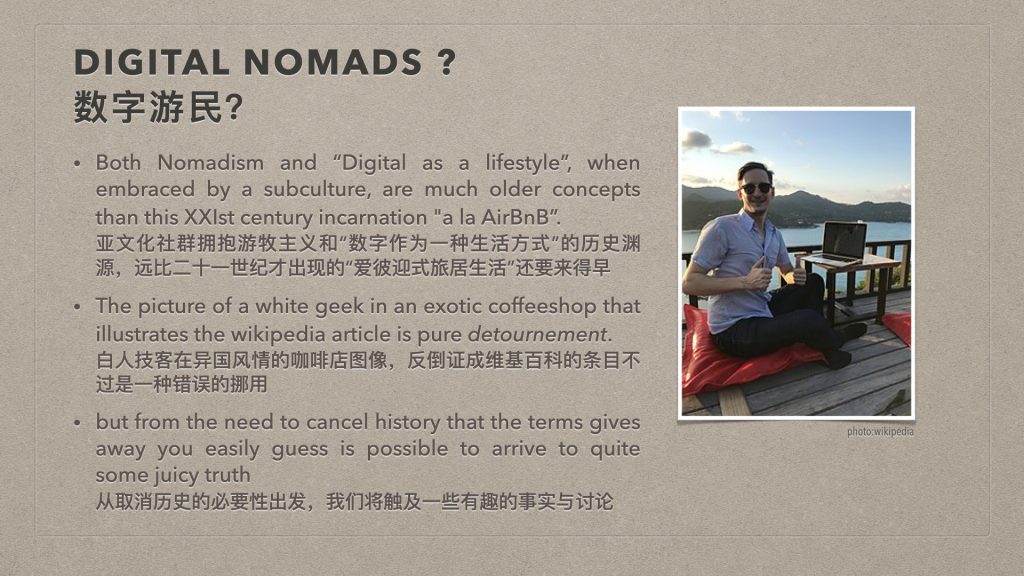
Both Nomadism and Digital as a lifestyle, embraced by a subculture, are much older concepts than this XXIst century incarnation “a la AirBnB”, that seems fashionable to wikipedians. But I guess the interest in the concept must be serious and travel beyond the picture of a white geek in an exotic coffeeshop that illustrates the blasphemous article.
Digital cultures roots run much deeper and interconnected than this
They have a complex and mycelian rich rhizome that digs into many layers of complexity, is far reaching and creates fertile soil for revolutionary ideas. Good lord I am part of it I must know! So the initial drive to draw this story and following the invitation to tell it to you.
I asked myself some basic questions, as “why the soul of digital cultures is still so relevant to need to be detoured and monitored by the main ones?”. I think that the answers are obvious for us, the dinosaurs, but is maybe the right time to express it for you, the young Sky-walkers of the XXIst century.
My thesis here is that not only that the nomadic term is a intrinsic characteristic of the hacker culture, but that there are deep reason why some of the most interesting development of technology that are pushed by this culture to existence are growing out the mythical archetypes that are part of “nomadism”, both in the cyber space or in the meat one. From the traveling monks, the caravanes of nomads, the hunter gatherers, the posse, the stray lonesome anarchist, the tank girls, the cyborg, the assassin of the cyber-world, the pirates and so on.
But lets’ start. With some analysis of the notion of Digital Nomad and make for our self a bit of clarity.
- What do we mean with Digital?
- The Net, the virtual world are as well metaphorical terms to define “the internet”
- why “digital” has been chosen? Why not Networked Homeless or Techno Gypsy?
- when did the loss of complexity about the internet begun? How we came from a interconnected polycentric view (the rhyzome) to a polished hierarchy of interconnected dots (the network) to the metaphysical Matrix and then we grew to a image of this pot filled with crap of big data proportions?
- So not a complex space but a consumerist lifestyle?
- The Net for me was a point of access to a set of subcultures were you could feel free to invent one
- How old is this sub Digital culture?
- The concept of tele-work is 60 years old, paperless office dates to the ’70es, the tools of white collars have de-materialized in the ’80es… What do we mean by Digital in this context?
- Cybersin is a project from 1970-72 (duckduck about it if you never heard about it)
- The Network predates the WWW: TCP/IP 1969 (ARPANET)
- Gopher (the index) predates the WWW (the hypertext), predates FB (il “muretto”, the “small wall”)
- How old is this sub Digital culture?
But let’s move on, and check the second term that seems more interesting:
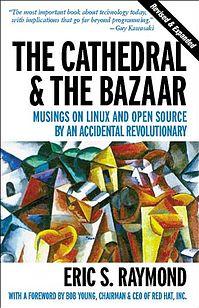
- What we mean with Nomad…
- the nomads are organized in autonomous tribes
- they know the world in a different way (lay-lines)
- they have interesting rituals
- and good music
- and cool ways to celebrate life and death
- they are mysterious and connect with mysterious forces,
- they talk their own language you don’t get but know many
- they might pray on you
- or if you are worth… onboard you
- How to complete the sentence… Who are we talking about? Who are the heroes?
- The Silicon Valley misfit/hero? (the capitalist? The hobo? The criminal? )
- Must the hero be a Male/White/Anglo Saxon ?
- The User? The Coder? The middle man? The free software commoner with a fat bonus from the previous job? Who can afford to impersonate (or embody) the new era?
- See the cathedral and the bazaar, S.C. Raymond https://en.wikipedia.org/wiki/The_Cathedral_and_the_Bazaar 1999) NB the illustration of first edition is from a Russian futurist painter. It gives away a hint to a path. Let’s keep this in mind.
- the maintenance person? (Mr Tattle, Brazil 1985)
- the mother of invention? (Frank Zappa 1960es) or the lost soul of rock and roll as it slowly becomes the “creative industry”
- shall we decide beforehand an identity or keep it fluid?
- It is political! Outside the parliamentary political debate, since 1968 in italy there is a reality that consider itself alternative.
- Is called “The Movement”, as many faces, hundred on reincarnations and translates well with “The Flow”.
PART TWO
Matrix and flow
But if the game of Identity I/we inherited from the generation before (in the ’70es) was the wild west, as a myth and a place for freedom (the metropolitan indians, Tex Willer, Star Wars), for us/me this identity transformed into a matrix, seen as a impossible union between the sygil and the symbol, in a dance of significations… It was all Umberto Eco’s fault.
The Matrix became a much more complex toy.
Before becoming the interesting franchise known worldwide the “matrix” was a Latin word meaning the female/fertile receptive force (the placenta in uterus) that allows generation. The mother. Not a case that the computer name in Alien (1979) is “Mother” and Alien is a franchise were the story is driven by dangerous corporate priorities. To prepare this short paper I dig into my own matrix and there is practically everything I ever touched…
The matrix is the productive territory, made of biomorphic digital creatures were the cyberpunk roam. Is were the “I” takes its shape and starts shifting in all possible declination.
So we broke down the “Digital Nomad” into parts that we can process with hydrochloride acid and start digesting. But that is an old methodology mediated from the arci-evil Socratic Posse, not really a dignified way for the philosophical humanist.
So let’s proceed to give attributes to these Digital-Nomad people and see then how they will move in this “space” we identified for them to live in. This is important part of my way of work because is the necessary process to design a situation.
Extras
Things to watch:
- Fictiomentary: The KGB, the Computer, and Me (Complete) https://www.youtube.com/watch?v=EcKxaq1FTac the story of Karl Koch from the american perspective. Nothing can mark better the distance between the Point Of View (pov) of the Sysop and the pov of the punk…
- Ghost in the Shell (1991-1995) https://en.wikipedia.org/wiki/Ghost_in_the_Shell
- The Techno Viking ( K Techno from XI century) https://www.youtube.com/watch?v=UjCdB5p2v0Y) the point were a rave and a party and a parade touch and a meme is born (2000)
- La Meglio Gioventu’ Marco Tullio Giordana is a (long) film about italy from the ’60es to the ’90es’. Is from 2003
- I 100 Passi, is a much better film about Mafia and free radios in south Italy, from the same director, https://en.wikipedia.org/wiki/One_Hundred_Steps0
- PI (1998) Darren Anowski fictional film about cypherpunk themes (1998) https://en.wikipedia.org/wiki/Pi_(film)
- Italy 1977, movement and communication https://youtu.be/Z3hcEnRNlAQ
Other R(andom)Pointers
- Spaghetti Hackers (1997) is one of my favourite sources on Italian hackers scene, but I don’t think has ever been translated to English. A good source on the intermingle between hackers and electronic artists in 1990’es i Tatiana Bazzichelli (https://networkingart.eu/) and her work is a serious attempt to map the mouvement sides. From Tatiana there is a lot just a search away. See for ex. Networking, the net as artwork (https://books.google.nl/books?id=VbiQ2-Xh20EC&printsec=frontcover&dq=tatiana+bazzichelli&hl=it&sa=X&ved=2ahUKEwjW-ICu-ITuAhWUHewKHRPsCKoQ6AEwAHoECAEQAg#v=onepage&q=tatiana%20bazzichelli&f=false.)
- Duglas Rushkoff, Childen of Chaos (1996)
- Luther Blissett, “Q”, Einaudi (1999)
- Decoder and Shake Edizioni (publishing house in Milan) starts in 1987. I never read the magazine myself. Was made by a bunch of sociology dropout and the ocntent was technically risible. Obviously was relevant and remained https://it.wikipedia.org/wiki/Decoder_(rivista) It was the Bourroghs that influenced CCC narrative from the Decoder group that constitued one primary influence for the 1990 edition of Santarcangelo Festival and the Pantera movement.
- Cassern (1972) https://en.wikipedia.org/wiki/Casshan
- Gundam (1979) https://en.wikipedia.org/wiki/Gundam
- Capitan Harlock (1979) https://en.wikipedia.org/wiki/Space_Pirate_Captain_Harlock
Questions and answers
观众群的几个问题:
- 数字游民会成为一种扩大化的趋势么,比如说有相当一部分的公司采取远程化的工作模式?如果是的话,如何确保远程工作人们的培训、交流和其他权益保障等?在此背景下,可能会衍生出哪些周边服务?
- 如果想做数字游民,应该如何开始?有什么要注意的?
- 对于企业来说,开放远程工作的岗位意味着什么?公司会看重什么?会有什么变化?例如如何进行绩效管理,薪资待遇方面的调整。
- 数字游民自由职业者群体,如何更好的和其他个体或者组织协作。有没有什么法律保障,协议之类需要注意的点
- 数字游民是否是零工经济的另外一种表达? 如何让数字游民形成一个互助的社群? 比如成立coop合作社?
- 想问张致中先生一个问题,很多驻地艺术项目提供免费工作室和工具并且可能会有一定微薄的stipend,但是需要自付并不廉价的旅费和住宿费用,甚至有些所谓驻地项目就是打艺术牌的民宿招租。那么在艺术家自己的作品没有实现商业成功之前,如何去负担“游牧式驻村”的资费,来实现艺术口碑的原始积累?
- Will digital nomads become a trend of expansion, for example, a considerable number of companies adopt a remote working model? If so, how to ensure the training, communication and other rights protection of people working remotely? In this context, what peripheral services might be derived?
- ANSWER: t is already happening. Again I suggest to see the characteristics of this phenomena from the point of view of situation (the complex way). Your work has been dematerialized, money have a different value, society could be redesigned, what is what you want, and your group wants, and you can fight for or work to realize…
- If you want to be a digital nomad, how should you start? What should I pay attention to?
- ANSWER: you can start from the body (were you live, how, what you do) or the code. I would start from an attitude to learning, the rest comes as a consequence
- For companies, what does it mean to open up positions for remote work? What will the company value? What will change? For example, how to perform performance management and salary adjustments.
- ANSWER: these questions are very difficult for me to ask. I would suggest you to formulate them as a request: what would you ask to a company that makes you work remote? What do you need? How you would like to be payed and in what currency?
- How can a group of digital nomads freelancers better collaborate with other individuals or organizations? Are there any legal protections, agreements and other points that need attention
- ANSWER: Depends from the land they have their legal residency. And that is connected with taxation, rights, cost of life… is very difficult to tell, but again is the time to imagine what you want
- Is the digital nomad another expression of the gig economy? How to let the digital nomads form a mutual help community? Such as setting up a coop cooperative?
- ANSWER: I agree. Many designers from Italy live for ex. in Berlin or Barcelona, work in Milan, are payed in euros at the Milan rate and consume in Berlin that is considerably cheaper. They can afford to play rich and do art for free in the city, and they don’t pay taxes there. That is another part of gig economy. Gig economy is Society of spectacle seen from people that like the show. We were supposed to dislike and fight that show….
- I would like to ask Mr. Zhang Zhizhong a question. Many resident art projects provide free studios and tools and may have some meager stipend, but they need to pay for their travel and accommodation costs, which are not cheap. Some so-called resident projects are even art-based homestays. Renting. Then, before the artist’s own work has achieved commercial success, how can he afford to pay for the “nomad residency” in order to achieve the original accumulation of artistic reputation?
CONTINUES… this is to go to part 2 >>>
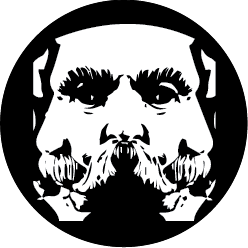
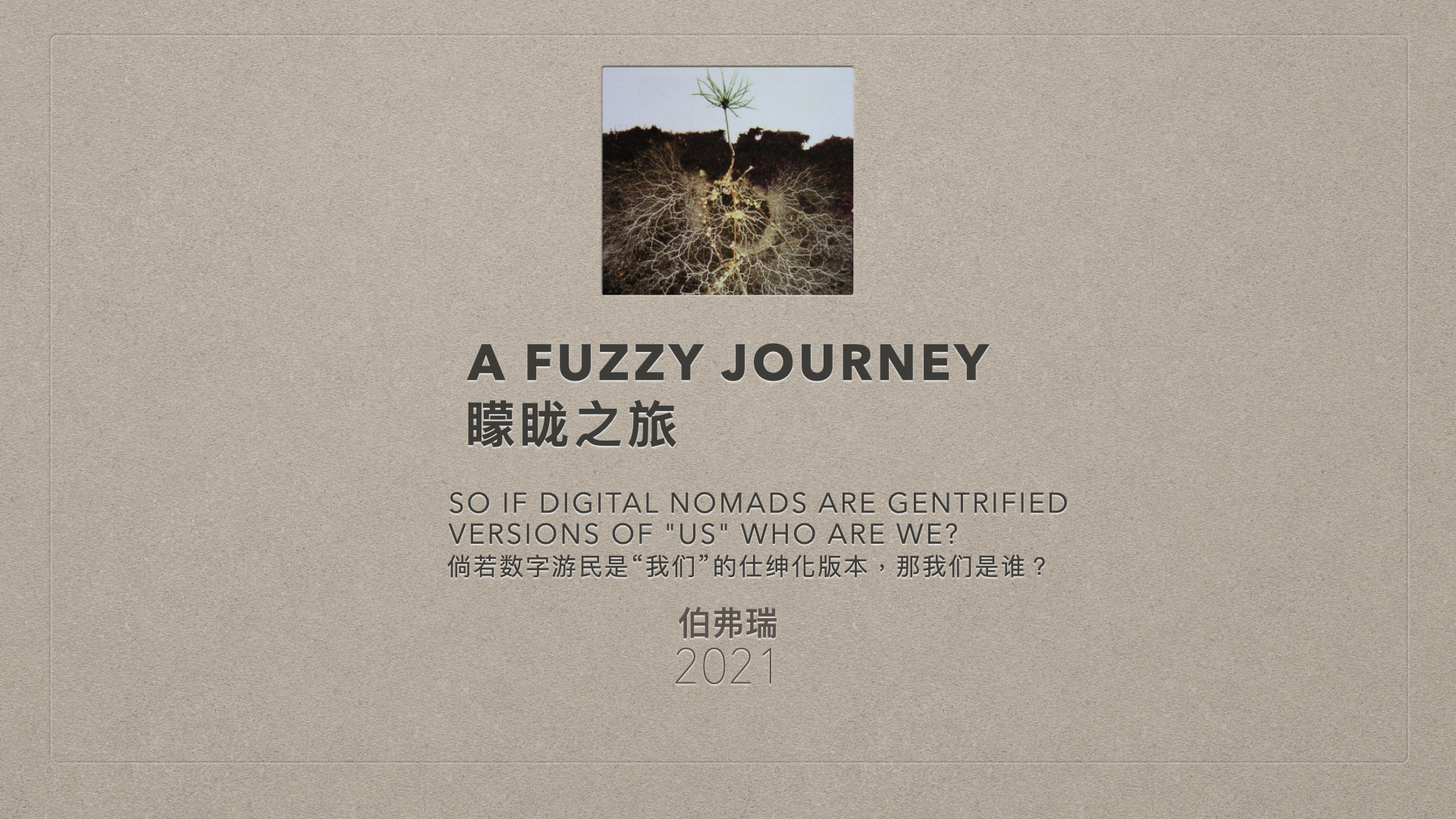
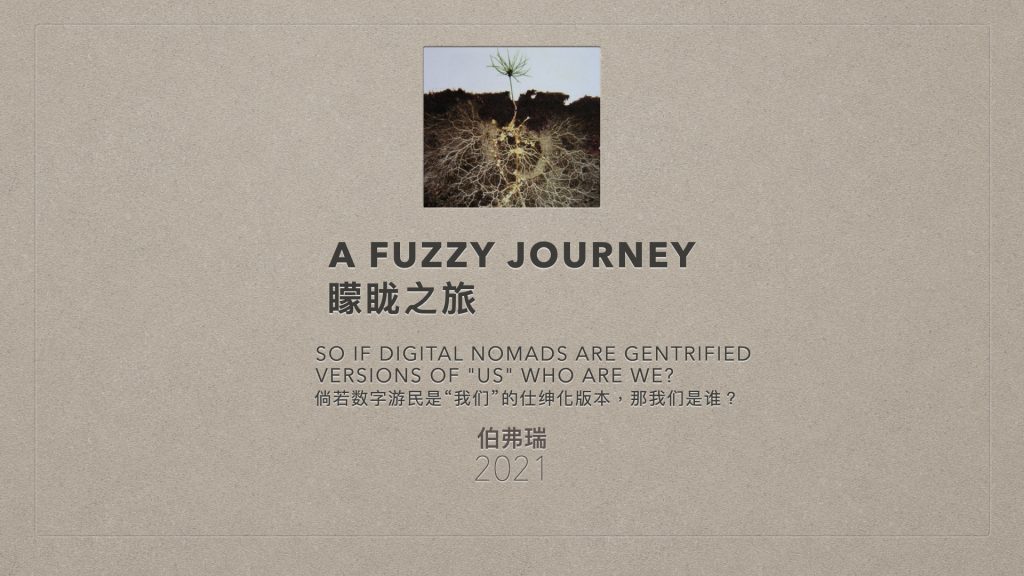

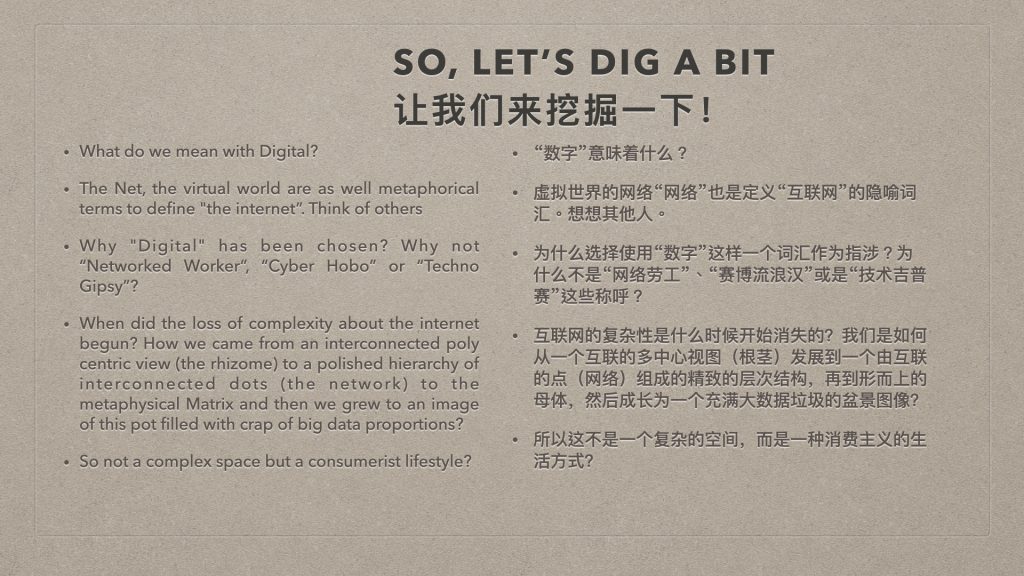
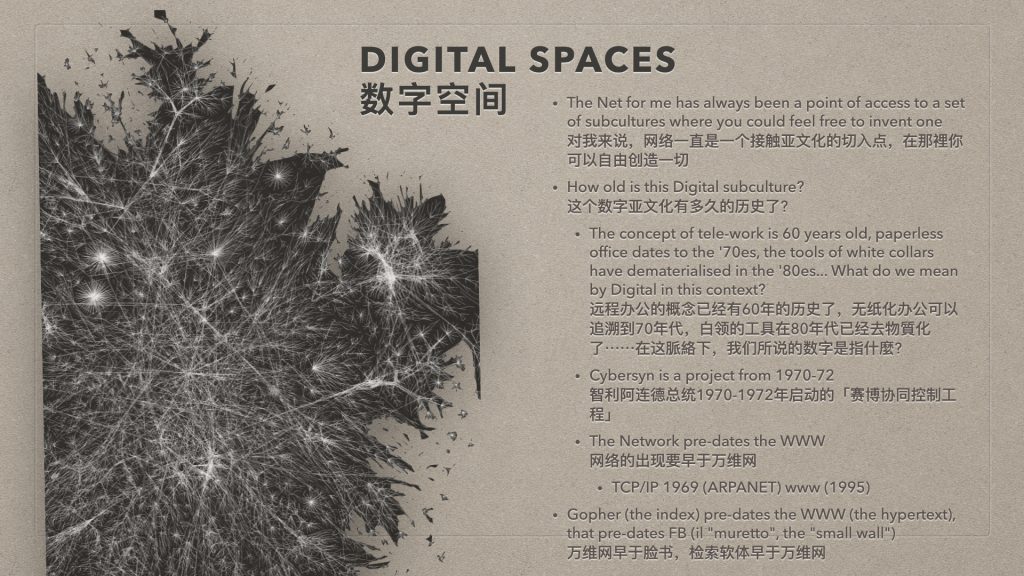
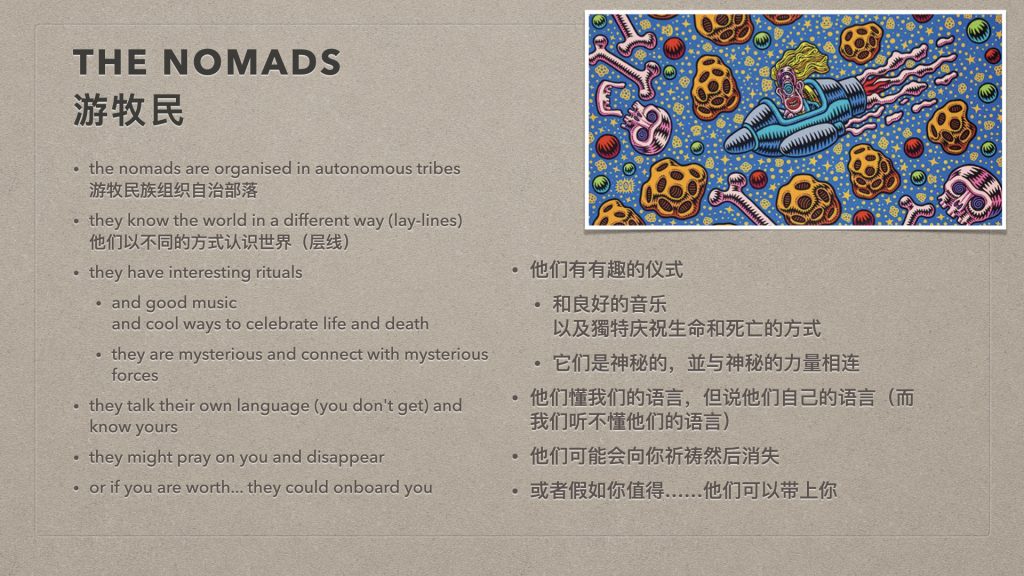
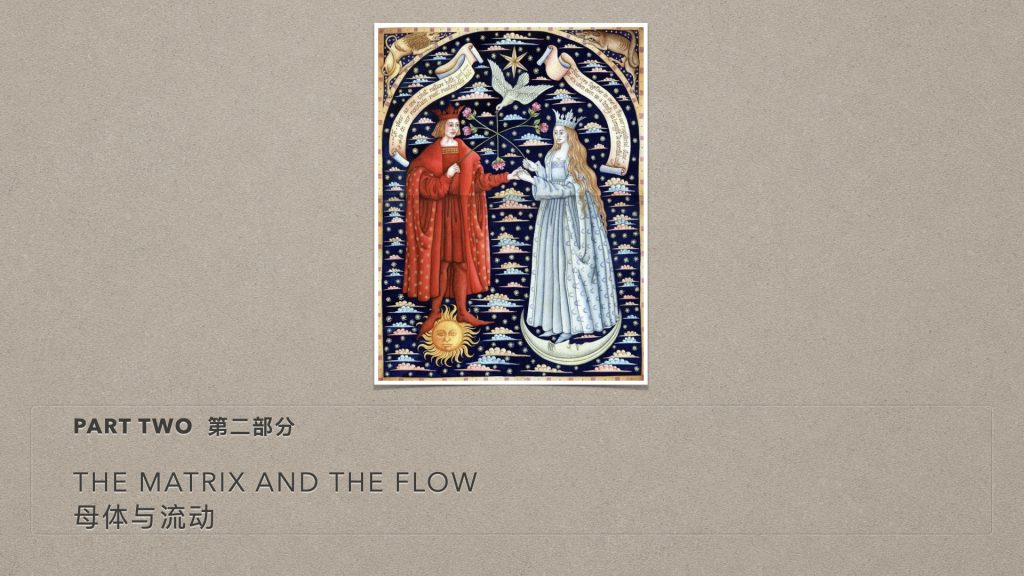
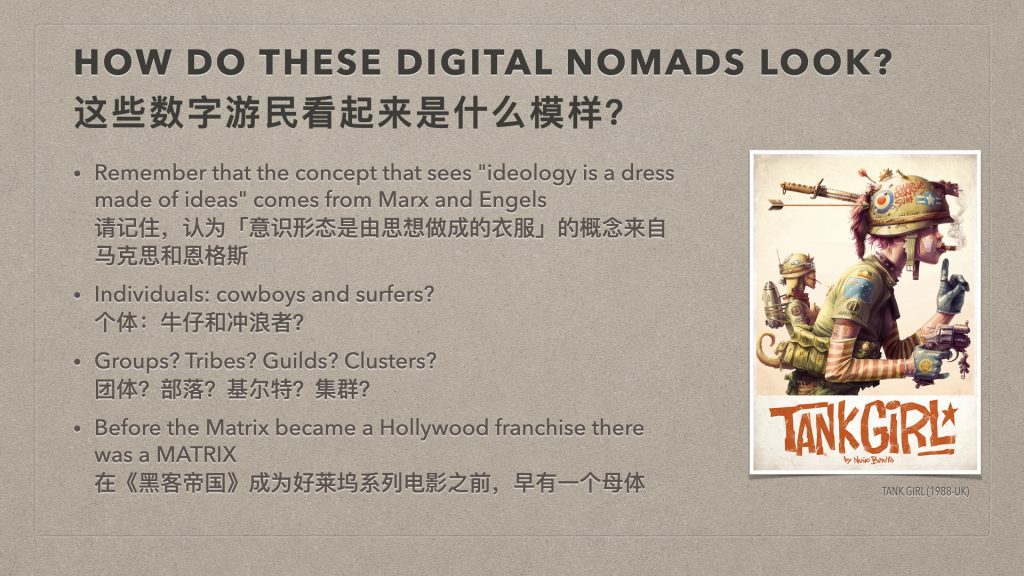
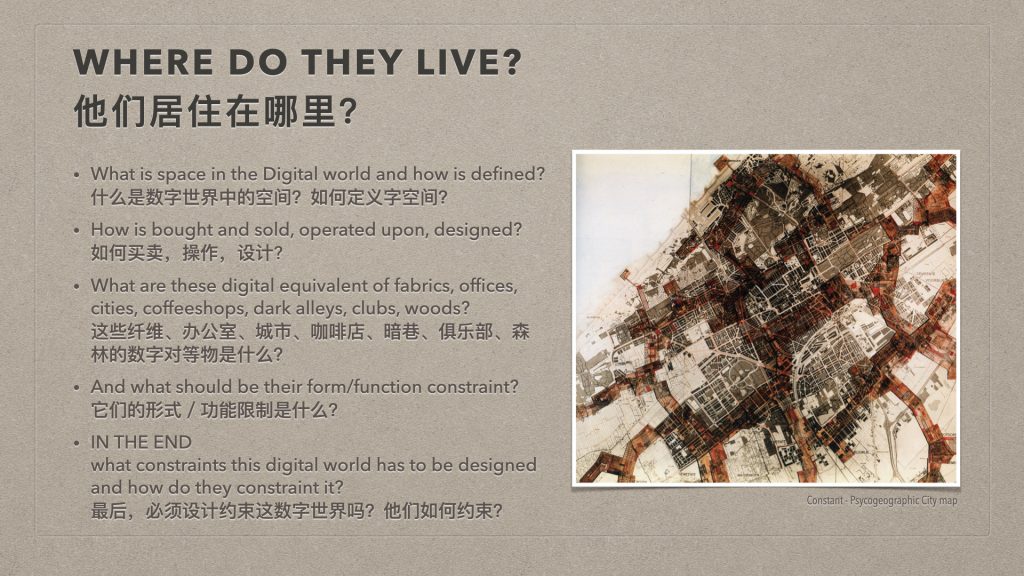
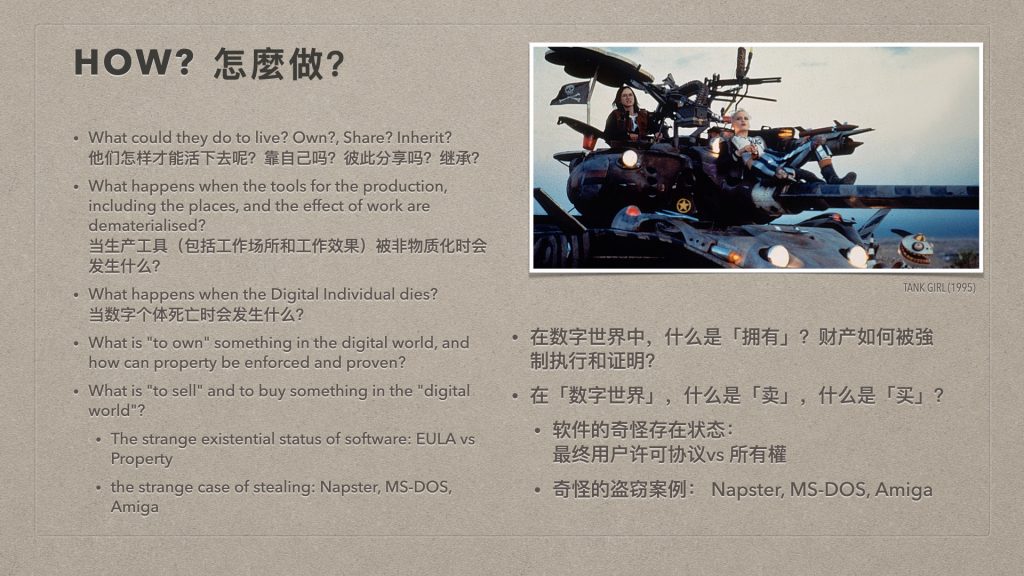
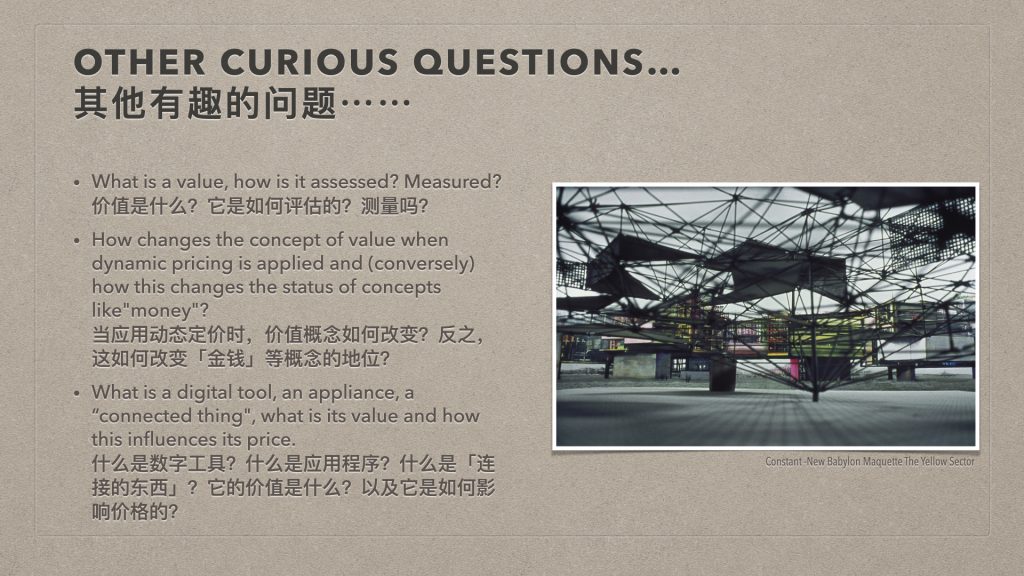
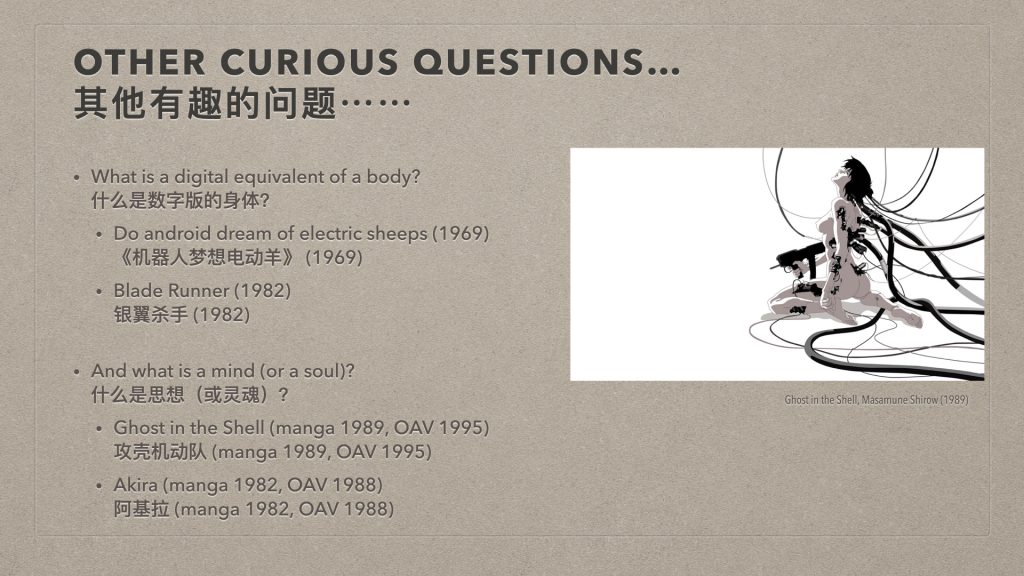
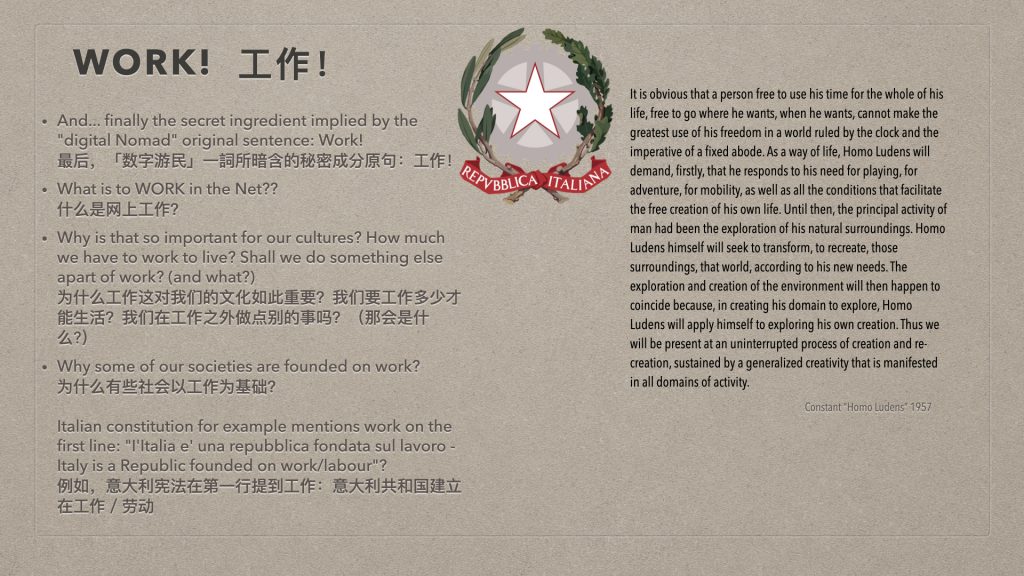
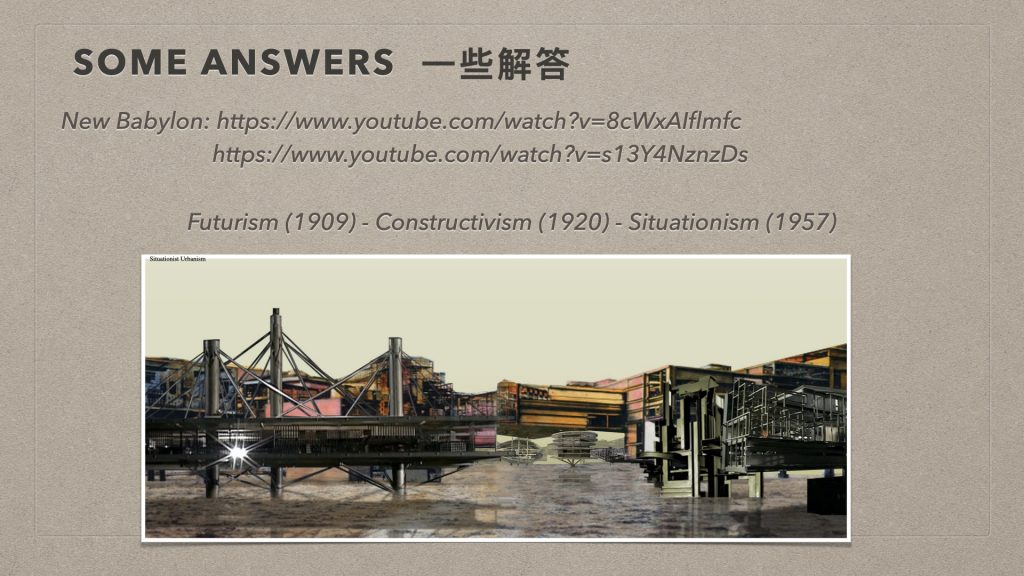

One thought on “A Fuzzy Journey – 矇眬之旅”